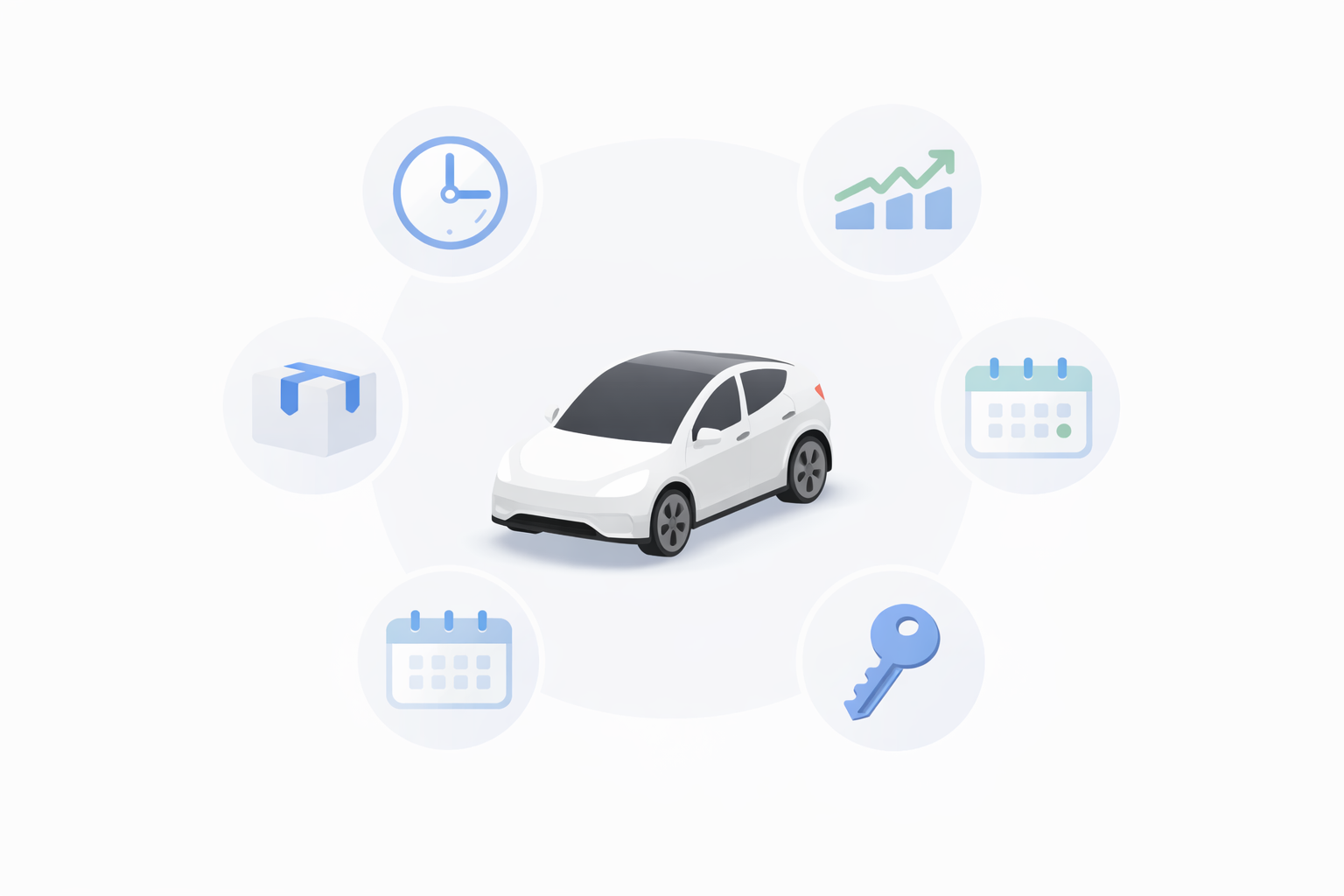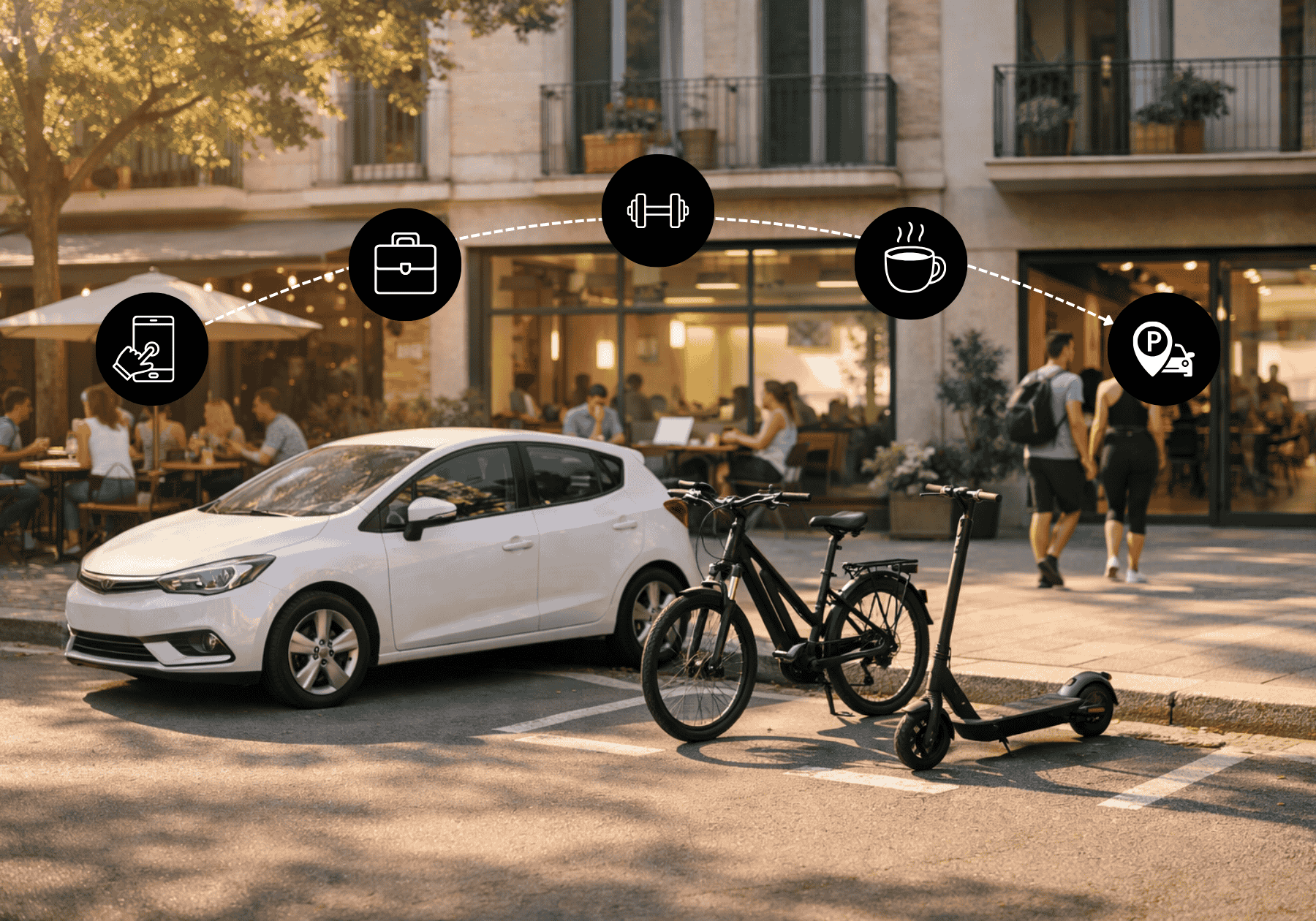Ever find yourself stuck in a traffic jam, thinking there has to be a better way? Welcome to the future. As we speak, the concept of smart cities is taking root, revolutionising urban mobility. Picture this—bustling city streets, minus the traffic chaos, replaced by a seamless, efficient, and eco-friendly transportation system.
At the heart of this transformation is vehicle sharing, a game changer that's redefining our relationship with cars. Gone are the days of everyone owning their own four wheels. Instead, we're moving towards a world where vehicles are shared, reducing both traffic and pollution.
But that's just the tip of the iceberg. Throw in advanced technology, data analysis, and interconnected infrastructure—and you've got yourself a smart city. Think of it like a well-oiled machine, where every cog, every gear, every part works in perfect harmony.
And the best part? It's not some distant, far-off future. It's happening right now. Cities around the world are embracing this new vision of urban mobility, making the leap to become smarter, greener, and more livable.
Intermodality and Seamless Integration with Public Transport
One of the key components of a smart city's transportation network is the seamless integration of various modes of transport, including public transit and shared mobility services. By fostering intermodality and smooth transitions between transport modes, smart cities can offer residents a truly connected and convenient commuting experience.
Vehicle-sharing services, such as car, e-bike, and scooter sharing, play a critical role in this intermodal ecosystem. These services can bridge gaps in public transport coverage, provide last-mile connectivity, and support on-demand, flexible transportation needs.
Vehicle sharing businesses can further enhance this integration by collaborating with public transport providers, developing combined fare structures, or offering special promotions to encourage combined use of public transit and shared mobility services.
These collaborative efforts will not only provide users with a more cohesive and seamless transportation experience but also contribute to reduced traffic congestion, improved air quality, and a leaner, cleaner urban environment.
Leveraging IoT and Real-Time Data for Improved Management
The proliferation of Internet of Things (IoT) devices and sensors in smart cities is creating a wealth of real-time data that can be harnessed to operate vehicle-sharing services more efficiently. The CTMS software can leverage this data to optimise fleet distribution, monitor and maintain vehicle health, and even predict future demand.
For instance, real-time data on parking availability or loading zones can inform vehicle-sharing businesses where their cars, e-bikes, or scooters should be placed to meet user demand effectively. This optimisation not only minimises idle time and deadheading but also contributes to more equitable distribution of shared mobility resources across the city.
Access to real-time traffic data and information on road closures or construction can help vehicle-sharing operators and users alike to plan more efficient routes, ultimately reducing the overall travel time and environmental impact.
Data-Driven Collaboration for Sustainable Growth
As smart cities strive for sustainable growth and development, data-driven collaboration between various stakeholders in the urban mobility ecosystem becomes essential. Vehicle sharing businesses, public transport providers, city authorities, and other mobility service providers need to share data and insights to create a truly integrated transportation network that caters to diverse user needs while minimising environmental impact.
The CTMS software can play a pivotal role in enabling data-driven collaboration for vehicle-sharing businesses. The platform's ability to collect, analyse, and share valuable data on vehicle usage, fleet performance, and user behaviour can empower businesses to make informed decisions on fleet expansion, vehicle allocation, or even launching new services to address gaps in the urban mobility landscape.
By working together and leveraging shared insights, stakeholders in the smart city transportation network can benefit from mutual growth and maximise synergies to promote sustainable urban development.
Enhancing User Experience through Personalisation and Innovation
In smart cities, the expectations of residents and visitors are continually evolving, and vehicle-sharing services must innovate and adapt to meet these needs. Integrating location-based services, predictive analytics, and personalised features into their offerings, vehicle-sharing businesses can meet user demands for convenience, on-demand access, and customised experiences.
For instance, advanced vehicle-sharing platforms like CTMS can personalise user experiences by tailoring communication with users based on their travel patterns, preferences, and location data. Likewise, innovative features such as in-app vehicle booking, digital vehicle access, or in-built navigation systems can make vehicle sharing both convenient and enjoyable for users.
By staying at the forefront of innovation and personalisation, vehicle sharing businesses can thrive in the competitive landscape of smart cities and contribute to the overall advancement of the urban mobility experience.
Embracing the Future of Urban Mobility through Vehicle Sharing and CTMS
As smart cities continue to develop and shape the future of urban living, vehicle sharing businesses have a crucial role to play in contributing to a connected, efficient, and sustainable transportation network.
By staying attuned to the evolving needs of residents, city planners, and smart city technology providers, vehicle sharing businesses can harness the power of CTMS to streamline operations, optimise resource allocation, and contribute to the development of a truly sustainable, connected, and user-centric urban mobility ecosystem.
Elevate your vehicle sharing business' role in the future of urban mobility by adopting the comprehensive and feature-rich vehicle sharing software, CTMS, today.
Launch your vehicle sharing app in just 15 days with CT Mobility!
No setup fees. Unlimited features.
Free trial period.







.png)

